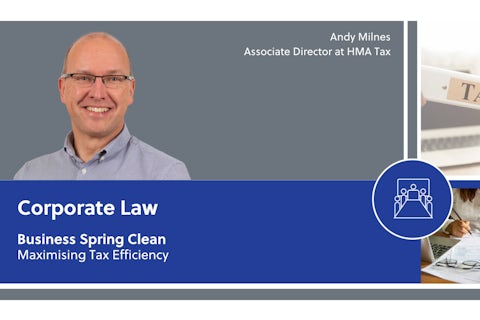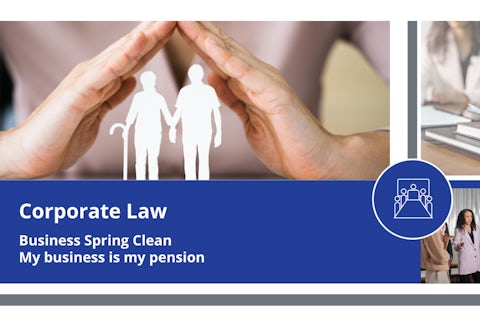Top tips for when you’ve found the right person to help you move your business forward.
As you grow your business, the question of who to hire is bound to come up sooner or later.
Yet entrepreneurs may well lack expertise in hiring and people management; besides, they need to give as much of their time and attention as possible to growing their business.
That puts them in potential danger. Should they choose to ‘wing it’ and not go through proper processes, the result can be legal action, fines, reputational damage and loss of business,
Two people who know this more than most are Charlie Johnson, CEO of recruiter BrighterBox, and his wife, employment lawyer Jane Johnson owner of JLJ Legal, both of whom specialise in helping start-ups and SMEs across a range of sectors.
Below, they highlight seven rules for hiring your first employee.
- Register as an employer with HMRC and set up a payroll.
As soon as you know you are going to employ someone, this should be a priority – although you cannot do it more than two months before they begin work. It’s a simple process that can be done online via www.gov.uk, but in order to pay your employee you need to set up a payroll system. Rather than do it yourself, it’s best to hire one of the many specialist outsourcing payroll companies to do it for you, so you need not deal with the hassle of looking after things like pension contributions and national insurance, and ensure any employees pay the right tax to save you grief later. - Check your employee has the legal right to work in the UK.
You can check this online if the prospective employee has given you their “share code”. Otherwise, just ask for their passport or UK driving licence; if they are a foreign national, ask for any relevant visas and associated paperwork. You can also confirm their residence with a utility bill. You need to check these documents carefully and look for any obvious discrepancies on dates or the pictures used or if the documents seem less than genuine. If you are not sure, and still want to proceed, consult a lawyer. If you knowingly employ someone you know (or could reasonably have known) does not have the legal right to work, you face a fine as much as £20,000 per individual. - Ask a professional screening company to run a Disclosure & Barring Service (DBS) check, if required.
Any person involved in working with children or vulnerable people in care homes or hospitals, for example, or regulated professions such as lawyers, accountants, vets, chemists and opticians, must pass a check by the government’s DBS. This ensures that they are a fit person to work in these environments. It’s easy and relatively inexpensive to use a specialist company registered with the DBS that will do this for a set fee and decide exactly which DBS check you need to undertake. Alternatively, you can ask the employee themselves to apply for DBS check on www.gov.uk, for a £23 fee and provide you with the relevant paperwork. But you must check it thoroughly. - Ensure you’re familiar with the correct minimum wages so you pay them appropriately.
There is a National Minimum Wage for people aged 16-24 and a National Living Wage for those aged 25-plus; as well as slightly different rates for those in apprenticeships and living in London. The pay rates are reviewed every April and failure to comply can result in fines of up to £20,000. Full details can be found on www.gov.uk – if in doubt, consult your accountant. - Purchase employer’s liability insurance.
This basically guarantees you are covered for any compensation claims arising if your employee becomes ill or is injured at work. By law you must display the Employer’s Liability Insurance certificate in your premises or office. It’s an easy one to sort out, as you just need to go to a good insurance broker to ascertain the right level of cover for the best price. Under no circumstances should you be tempted to underinsure – your policy must cover you for at least £5 million. You can be fined £2,500 every day you are not properly insured. - Ask a lawyer to draw up a written statement of employment particulars.
A written statement of employment particulars – sometimes known as ‘terms and conditions’ or ‘contract of employment’ – has to be issued if employment is for more than one month and must be issued within two months of the person starting work. It is effectively a legal minimum contract that covers key aspects of the employment, such as start dates, place and hours of work, holiday allowances and conditions for terminating employment. Avoid using a free, off-the-shelf template statement, as they are usually not worth the paper they are written on. - Auto enrol your employee into a workplace pension.
You are obliged to set up and contribute to a workplace pension for anyone who is a worker or employee who is aged between 22 and the state pension age, who earns at least £10,000 a year and normally works in the UK. If they are under 22 and earn less than £10,000 but ask to join, you still need to enrol them. Your legal obligations begin on the day your first member of staff begins working for you – known as your duties start date – and you must complete a declaration of compliance to the Pensions Regulator within five months of your duties start date. Failure to auto enrol an employee can result in a fine of up to £10,000. A workplace pension can be pretty tricky to set up on your own, so always talk to your St. James’s Place Partner, who can help you find an appropriate, manageable pension for your business.
The value of a pension with St. James’s Place will be directly linked to the performance of the funds you select and the value can therefore go down as well as up. You may get back less than you invested.Where the opinions of third-parties are offered, these may not necessarily reflect those of St. James’s Place.
Please note that clicking a link will open the external website in a new window or tab. Links from this website exist for information only and we accept no responsibility or liability for the information contained on any such sites. The existence of a link to another website does not imply or express endorsement of its provider, product or services by us or St. James’s Place.
The information and opinions contained in this blog are for information only. They are not intended to constitute advice and should not be relied upon or considered as a replacement for advice. Before acting on any of the information contained in this blog, please seek specific advice from Gilson Gray Financial Management.







